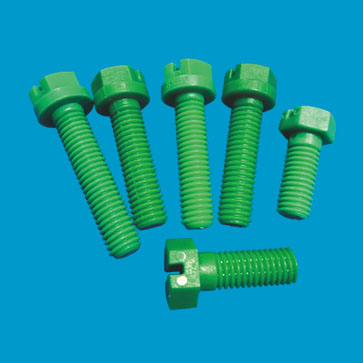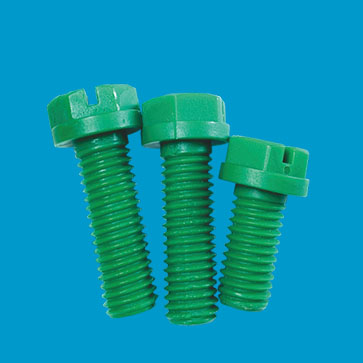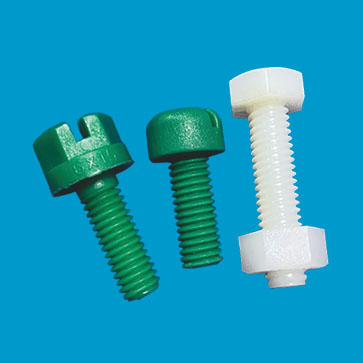





Common Materials and Characteristics
Stainless Steel (SUS304/SUS316): Excellent corrosion resistance and high strength, suitable for chemical environments.
Titanium Alloy: Lightweight, high strength, and corrosion resistance, suitable for high-end equipment or specialized applications.
PP (Polypropylene): Lightweight, acid and alkali resistant, and chemically resistant, suitable for general corrosive environments and non-high-strength connections.
Common Types
Flat-head screws, round-head screws, and butterfly screws are available, depending on the equipment structure and assembly requirements.
General Parameters
Thread sizes range from M6 to M16, and lengths can be customized to meet installation requirements.
Screw Introduction
Function
Screws are primarily used to fasten and connect various components in circuit board equipment, ensuring stability and precision during operation. They can withstand equipment vibration, temperature fluctuations, and chemically corrosive environments, while facilitating assembly and disassembly and maintenance.
Application Scenarios
They are widely used in PCB production equipment such as etching machines, developers, cleaning machines, exposure machines, and dryers to secure conveyor bearings, transmission components, panels, shields, and various structural components.
Key Advantages
Reliable connection, reproducible assembly and disassembly, chemical resistance, and adaptability to high-temperature and humid environments. It also allows for easy replacement during equipment maintenance.
Maintenance Recommendations
Before installation, clean the threads and ensure the mating holes are free of foreign matter. Tighten to the required torque to avoid thread stripping or breakage. Regularly check the tightening status to prevent loosening due to vibration.
To provide high-precision, high-performance PCB equipment accessories, empowering the global electronics manufacturing industry to achieve efficient production.

